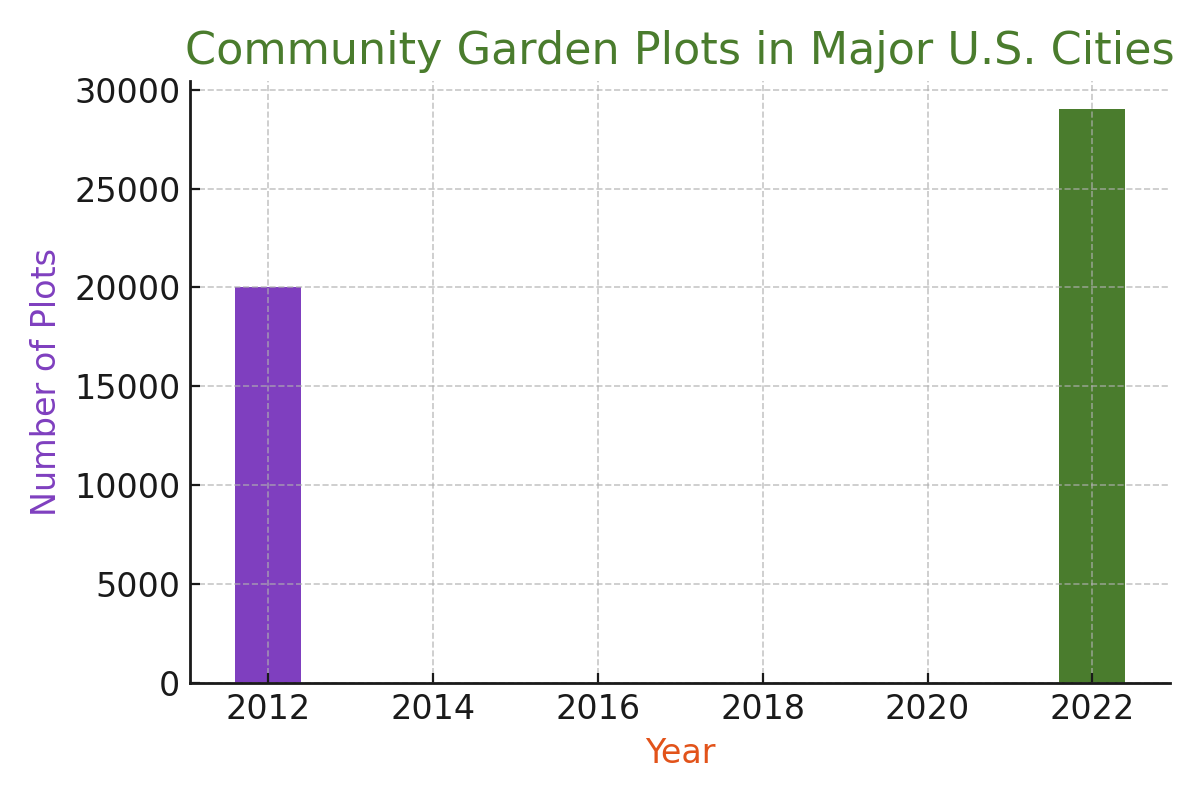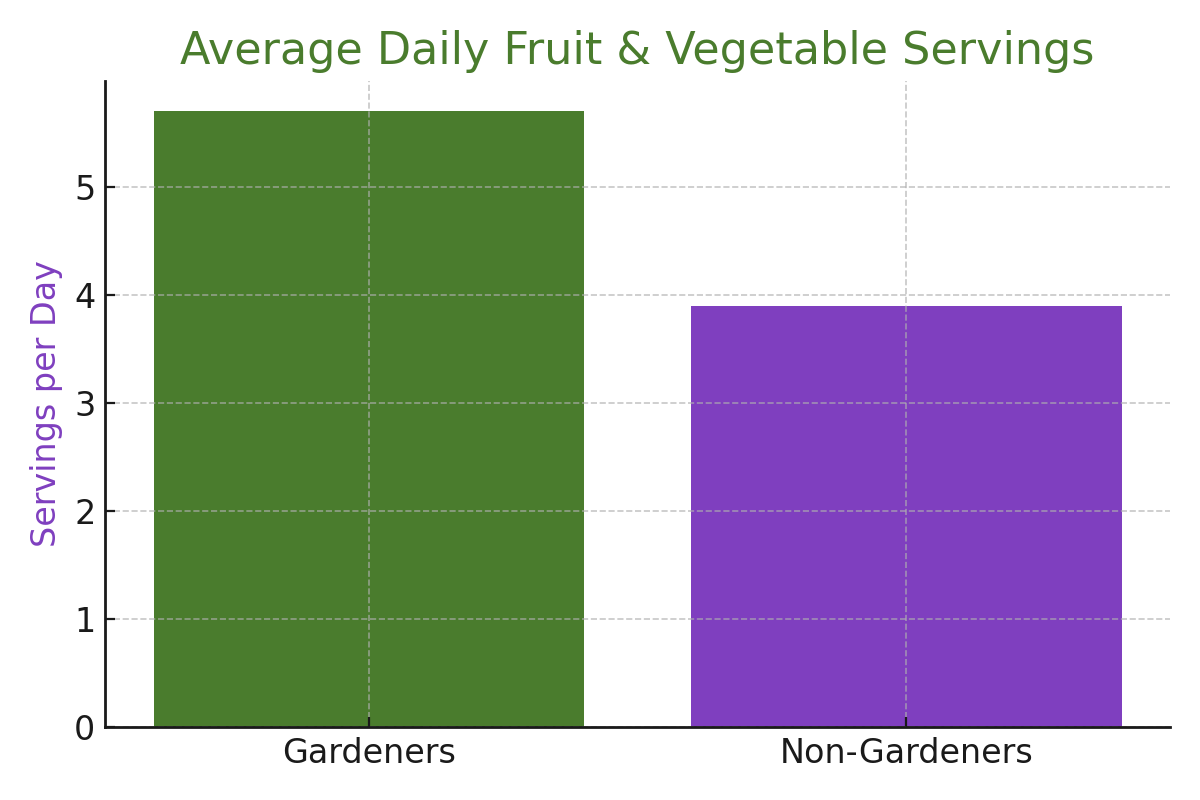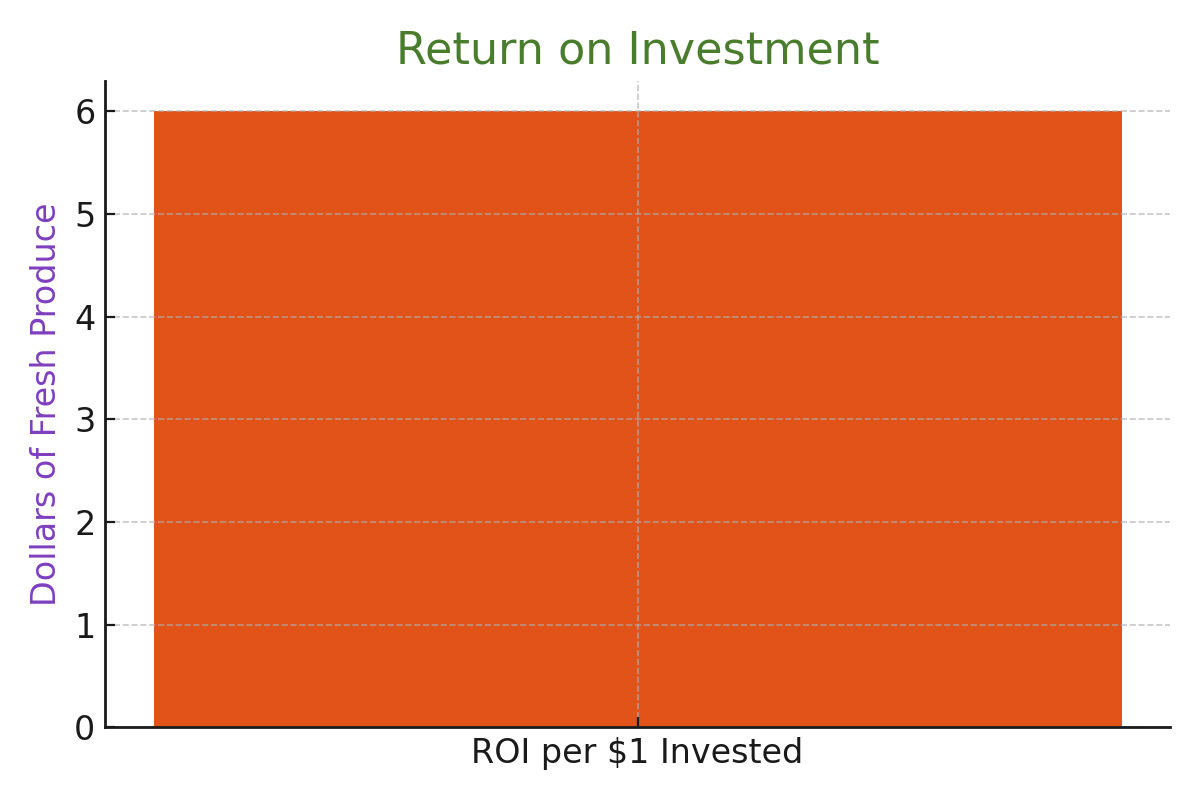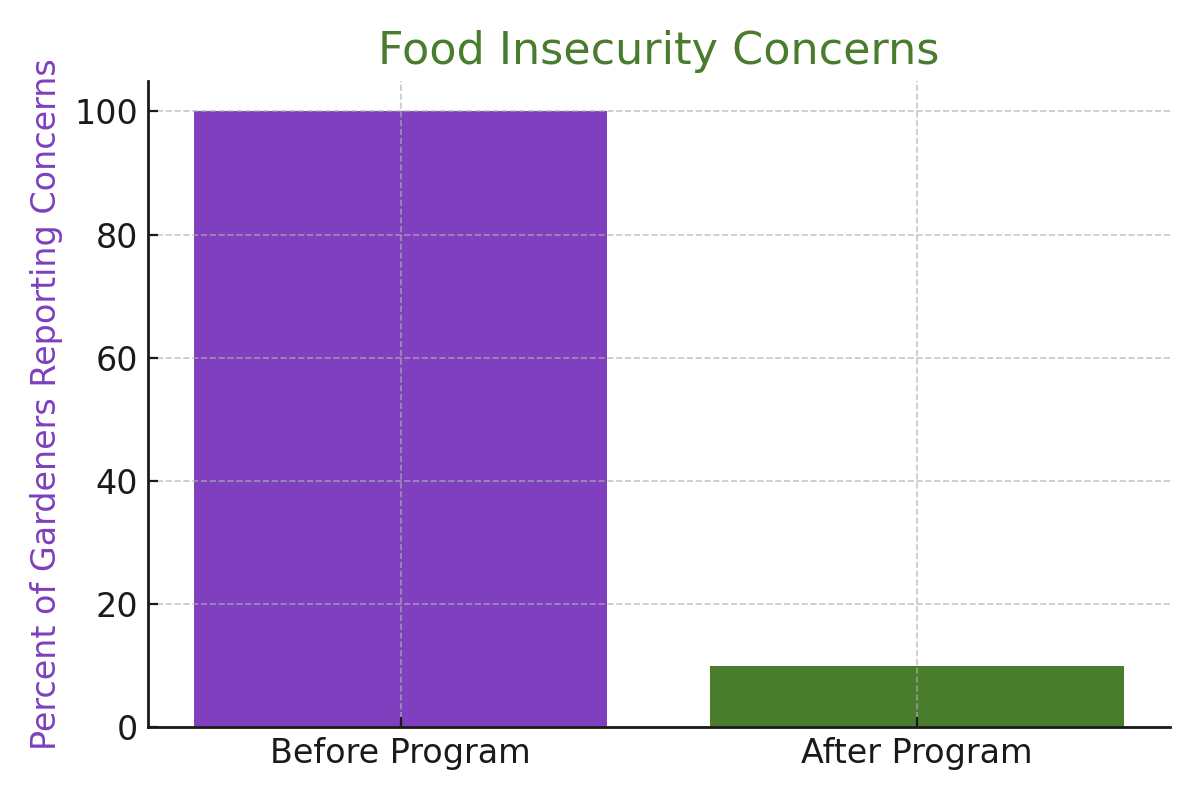
Why Community Gardens Matter
Community gardens are expanding rapidly and producing measurable benefits. Here’s a snapshot of their reach and impact:
• +29,000 plots in major U.S. cities
• 3 million+ gardeners nationwide
• $6 ROI per $1 invested
Health & Wellness Impact
Community gardening improves nutrition, lowers BMI, and boosts mental health. Participants eat more fresh produce and report reduced stress and a stronger sense of well-being.



Economic & Social Impact
Gardens raise property values, stretch food budgets, and strengthen civic ties. Every dollar invested yields fresh produce, healthier families, and stronger neighborhoods
Local Focus – Metro Atlanta
- More than 300 gardens, urban farms, and orchards supported by Food Well Alliance.
- Over 200 gardens in the five core counties (Cobb, Clayton, DeKalb, Fulton, Gwinnett).
- In 2025, Food Well Alliance provided $131,000 in direct support to 76 community gardens through grants.
- More than 106,000 pounds of fresh produce donated last year by supported gardens.
- Since 2007, Park Pride has helped establish 23 community gardens in Atlanta parks.
Challenges & Opportunities
Land access, funding, and volunteer capacity remain the biggest barriers. We’re working with partners to share resources and create sustainable solutions.
Downloadable Tools & Links
Explore partner resources, grant guides, and tools to strengthen your community garden:
• Food Well Alliance Community Gardens
• Metro Atlanta Urban Farm
• Cabbagetown Community Garden
• Park Pride Community Gardens
